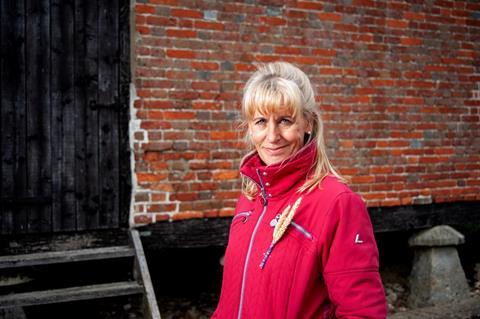Union welcomes recommendations to bolster population health, stressing that a coordinated government approach to food policy is vital

The NFU has called on the Government to act on the Efra Committee’s recommendations to bolster Britain’s food security.
A new report entitled ‘Food Security’, by the Environment, Food and Rural Affairs (Efra) Committee, addresses the availability and affordability of food from the household to the national levels.
It calls on the Government to explore the options and affordability of extending the provision of free school meals and to break what it calls the ‘junk food cycle’ the UK suffers from.
The report predicts that the current situation – which is partly caused by consumer price inflation hitting its highest level in over four decades – is likely to contribute to making 40 per cent of the population obese by 2025.
Responding to the report’s publication, NFU President Minette Batters said: “We have been calling for government to take our national food security seriously for several years and we echo the Committee’s recommendation for strong leadership on the issue.
“As part of this leadership, the need for all government departments to have a coordinated approach towards food policy is vital. We welcome the recommendation of a Cabinet Office review into all aspects of food policy.
“At such a tricky time for many UK households, the report addresses much of the inflationary pressures experienced by both families and farmers and growers. Everyone should have access to affordable, quality, sustainable food and British farmers and growers need the support of government to have the confidence to continue producing.
“The report’s finding that only 54 per cent of the food eaten in the UK being grown here is shocking and it is concerning that this number could decrease further if British food and farming isn’t valued.
“In the same week as CF Fertilisers announced it will be permanently closing its Billingham ammonia plant, the report’s acknowledgement of the risk of there only being one fertiliser factory in the UK is a timely one. Availability of fertiliser is a crucial element of domestic food security and government should look closely at how this could impact production.
“Food security matters and British farmers and growers are well placed to provide climate-friendly food for the nation, while protecting and enhancing our iconic countryside.
“Last summer the Prime Minister committed to introduce a new self-sufficiency target and annual reporting - clearly this needs to happen as a matter of urgency. With one of the best climates in the world for producing food, we should be aiming to produce more food here in the UK.
“For this to continue, we need to see government act on the recommendations made by the Committee to bolster Britain’s food security.”



